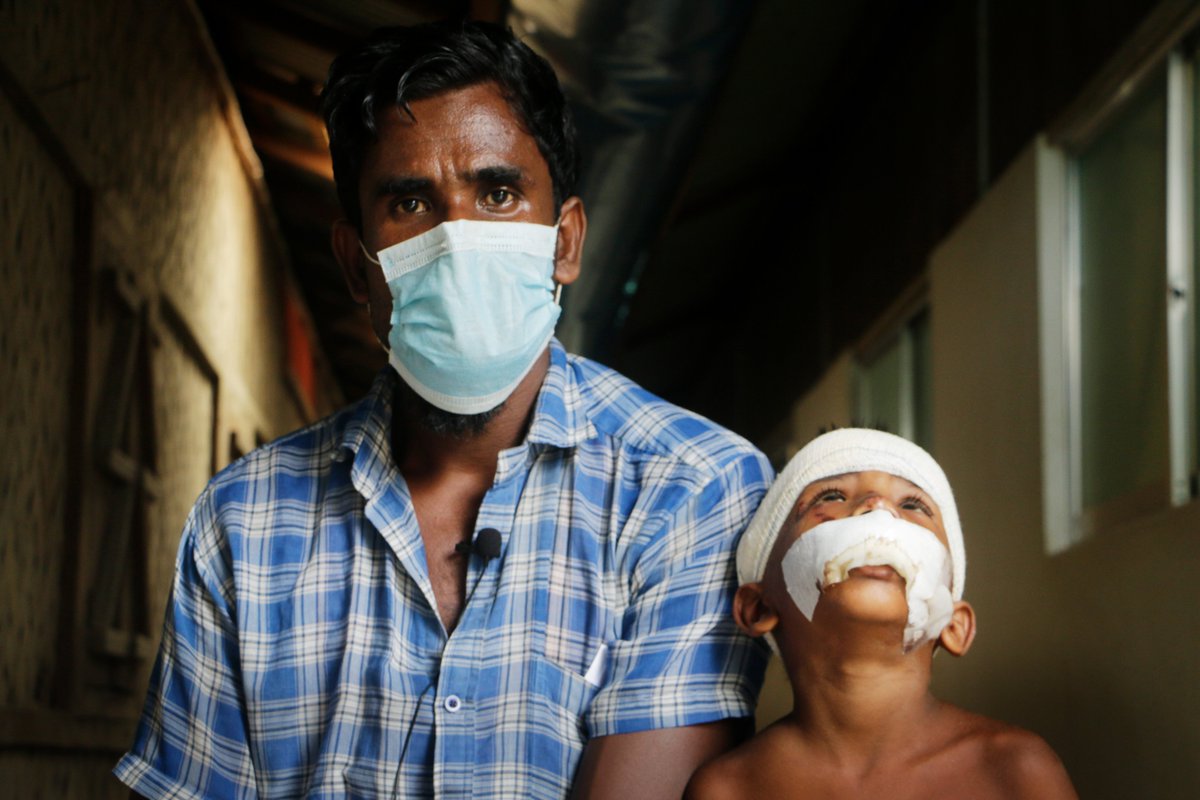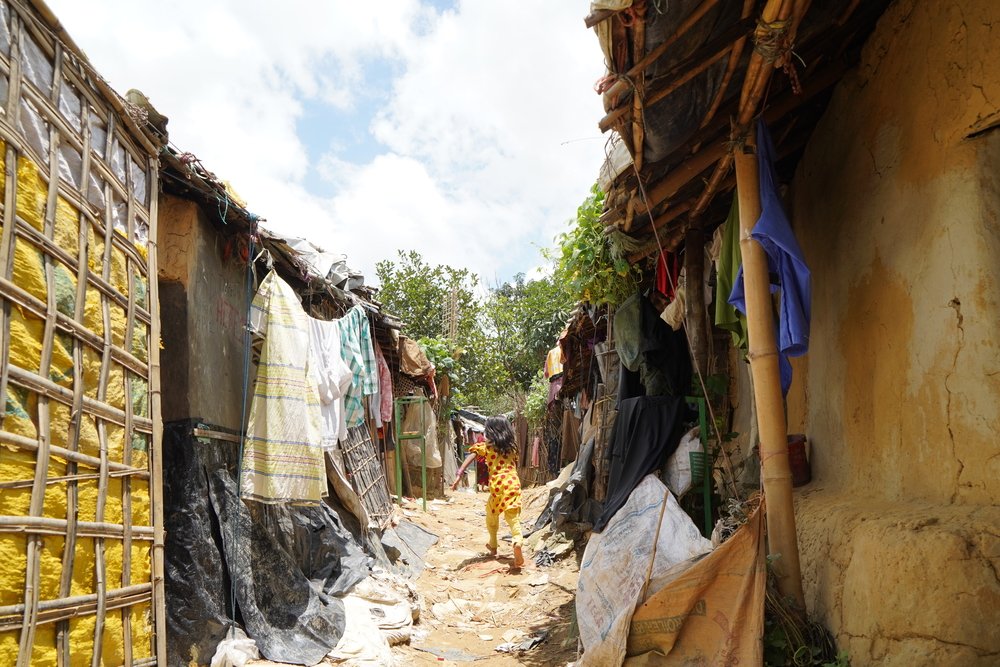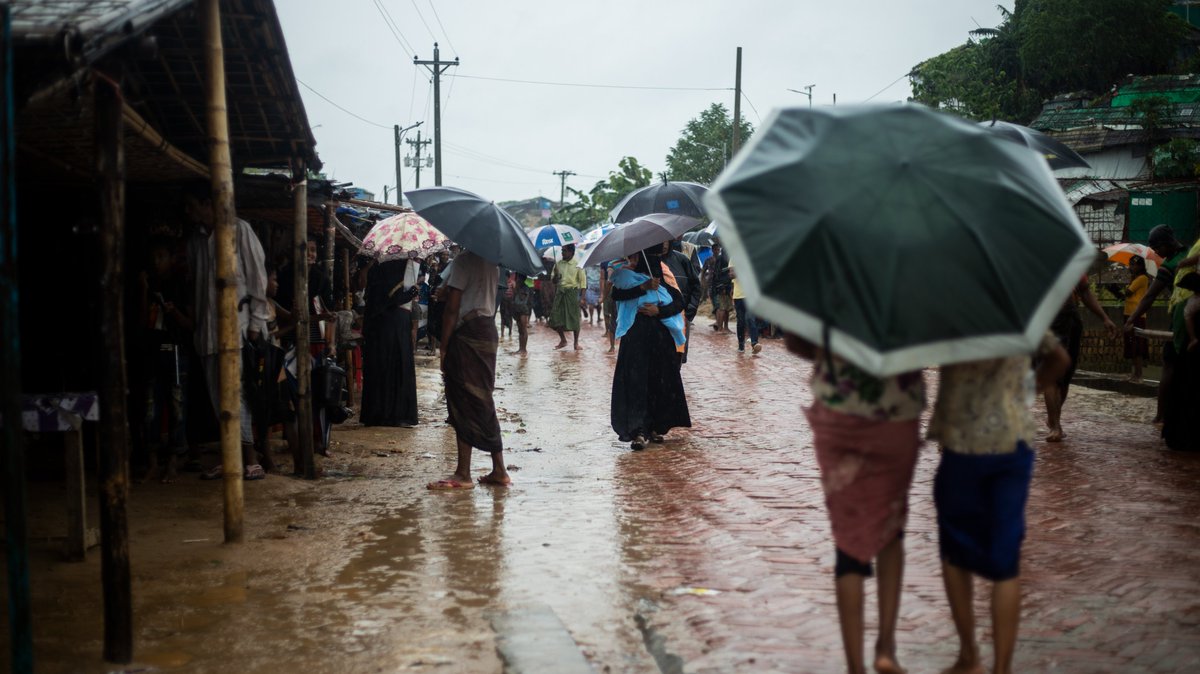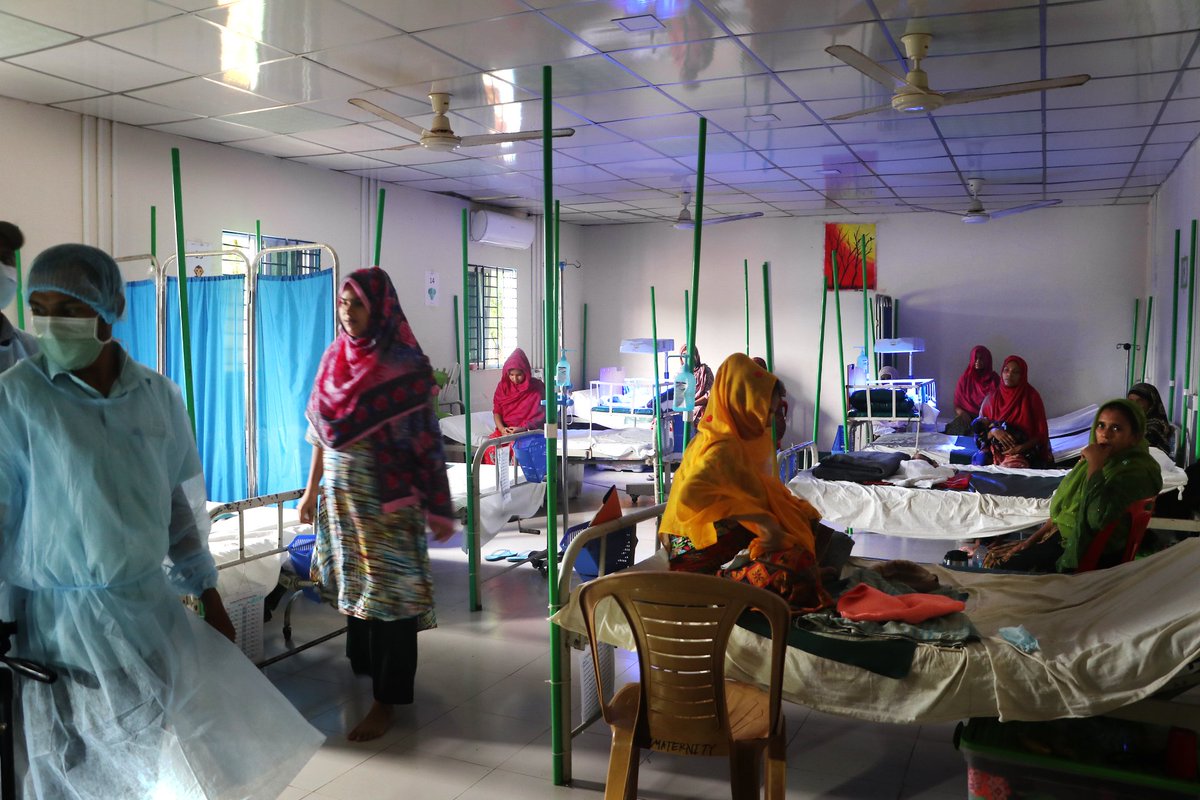#RohingyaCrisis: 25 August marks 3 yrs since clearance operations launched by Myanmar’s security forces drove over 700000 #Rohingya from Rakhine state into #Bangladesh
They joined others who had fled previous waves of violence in refugee camps in Cox’s Bazar.
Follow our thread https://abs.twimg.com/emoji/v2/... draggable="false" alt="👇" title="Rückhand Zeigefinger nach unten" aria-label="Emoji: Rückhand Zeigefinger nach unten">
https://abs.twimg.com/emoji/v2/... draggable="false" alt="👇" title="Rückhand Zeigefinger nach unten" aria-label="Emoji: Rückhand Zeigefinger nach unten">
They joined others who had fled previous waves of violence in refugee camps in Cox’s Bazar.
Follow our thread
Before escaping many experienced or witnessed horrific violence.
“I left #Myanmar because my house was burnt down. They were killing and torturing everyone, and harassing our women. It was not safe” -Abu Siddik, #Rohingya refugee in Cox’s Bazar
“I left #Myanmar because my house was burnt down. They were killing and torturing everyone, and harassing our women. It was not safe” -Abu Siddik, #Rohingya refugee in Cox’s Bazar
In 2017, we met and spoke with survivors of the violence in Myanmar, who sheltered in overcrowded and unsanitary camps in Bangladesh.
Here’s what we uncovered from these conversations: https://www.msfindia.in/myanmarbangladesh-msf-surveys-estimate-least-6700-rohingya-were-killed-during-attacks-rakhine-state/">https://www.msfindia.in/myanmarba...
Here’s what we uncovered from these conversations: https://www.msfindia.in/myanmarbangladesh-msf-surveys-estimate-least-6700-rohingya-were-killed-during-attacks-rakhine-state/">https://www.msfindia.in/myanmarba...
Three years on there is little hope of positive change for the #Rohingya, or for their returning home to #Myanmar in a safe and dignified manner any time soon.
People continue to live in overcrowded, flimsy shelters made of plastic and bamboo.
Their lives remain on hold.
People continue to live in overcrowded, flimsy shelters made of plastic and bamboo.
Their lives remain on hold.
Compared to the early days of the emergency, the camps in #CoxsBazar have now:
-more order
-better roads
-more latrines
-more clean water points
But life for the #Rohingya there is precarious.
And every year w/ the monsoon, the risk of floods, mudslides is very real.
-more order
-better roads
-more latrines
-more clean water points
But life for the #Rohingya there is precarious.
And every year w/ the monsoon, the risk of floods, mudslides is very real.
For the Rohingya, life there is precarious.
They continue to face:
 https://abs.twimg.com/emoji/v2/... draggable="false" alt="💢" title="Wutsymbol" aria-label="Emoji: Wutsymbol">unemployment
https://abs.twimg.com/emoji/v2/... draggable="false" alt="💢" title="Wutsymbol" aria-label="Emoji: Wutsymbol">unemployment
 https://abs.twimg.com/emoji/v2/... draggable="false" alt="💢" title="Wutsymbol" aria-label="Emoji: Wutsymbol">anxiety about the future
https://abs.twimg.com/emoji/v2/... draggable="false" alt="💢" title="Wutsymbol" aria-label="Emoji: Wutsymbol">anxiety about the future
 https://abs.twimg.com/emoji/v2/... draggable="false" alt="💢" title="Wutsymbol" aria-label="Emoji: Wutsymbol">poor living conditions
https://abs.twimg.com/emoji/v2/... draggable="false" alt="💢" title="Wutsymbol" aria-label="Emoji: Wutsymbol">poor living conditions
 https://abs.twimg.com/emoji/v2/... draggable="false" alt="💢" title="Wutsymbol" aria-label="Emoji: Wutsymbol">little or no access to basic services, such as formal education
https://abs.twimg.com/emoji/v2/... draggable="false" alt="💢" title="Wutsymbol" aria-label="Emoji: Wutsymbol">little or no access to basic services, such as formal education
They continue to face:
"The majority of the Rohingya patients we see, both children and adults, come with respiratory infections, diarrheal diseases and skin infections. These illnesses are mostly related to the poor living conditions"
-Tarikul Islam, @MSF’s medical team leader in Bangladesh
-Tarikul Islam, @MSF’s medical team leader in Bangladesh
This year, #COVID19 poses additional challenges in the refugee camps in Bangladesh.
An impact is the erosion of trust in the healthcare system: rumours and misinformation are rife, and fear is keeping people in need of medical care away from clinics. https://www.msfindia.in/bangladesh-five-challenges-for-the-rohingya-in-bangladesh-amid-covid-19/">https://www.msfindia.in/banglades...
An impact is the erosion of trust in the healthcare system: rumours and misinformation are rife, and fear is keeping people in need of medical care away from clinics. https://www.msfindia.in/bangladesh-five-challenges-for-the-rohingya-in-bangladesh-amid-covid-19/">https://www.msfindia.in/banglades...
Today is a reminder of decades of state-sanctioned violence, persecution & denial of basic rights.
Rohingya remaining in Myanmar continue to face discrimination & segregation.
In Malaysia, many don’t seek medical care for fear of being reported to immigration & detained.
Rohingya remaining in Myanmar continue to face discrimination & segregation.
In Malaysia, many don’t seek medical care for fear of being reported to immigration & detained.
Lately, countries in south-east Asia have repeatedly refused boats carrying hundreds of refugees fleeing the camps in Bangladesh to land for fear of #COVID19.
People are left adrift for weeks w/ little food & water, being often the victims of abuse. https://www.msf.org/rohingya-refugees-left-starve-sea">https://www.msf.org/rohingya-...
People are left adrift for weeks w/ little food & water, being often the victims of abuse. https://www.msf.org/rohingya-refugees-left-starve-sea">https://www.msf.org/rohingya-...

 Read on Twitter
Read on Twitter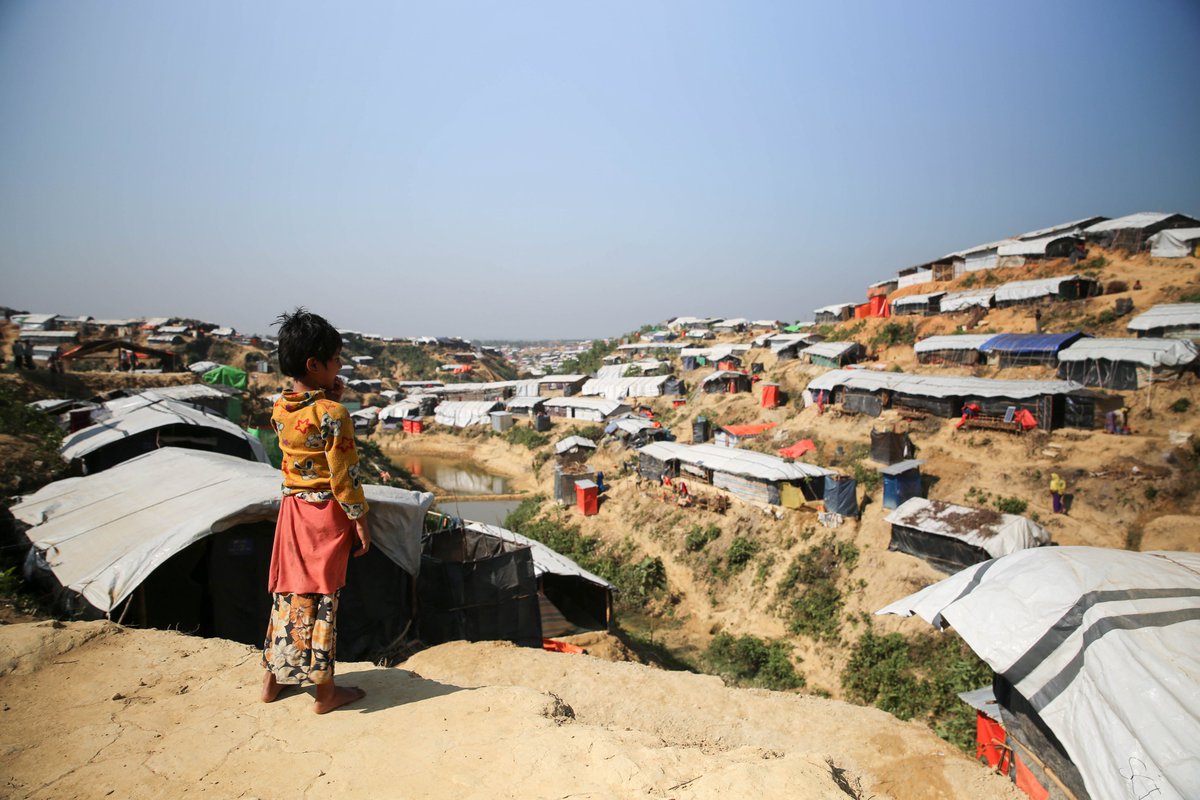 " title=" #RohingyaCrisis: 25 August marks 3 yrs since clearance operations launched by Myanmar’s security forces drove over 700000 #Rohingya from Rakhine state into #BangladeshThey joined others who had fled previous waves of violence in refugee camps in Cox’s Bazar.Follow our threadhttps://abs.twimg.com/emoji/v2/... draggable="false" alt="👇" title="Rückhand Zeigefinger nach unten" aria-label="Emoji: Rückhand Zeigefinger nach unten">" class="img-responsive" style="max-width:100%;"/>
" title=" #RohingyaCrisis: 25 August marks 3 yrs since clearance operations launched by Myanmar’s security forces drove over 700000 #Rohingya from Rakhine state into #BangladeshThey joined others who had fled previous waves of violence in refugee camps in Cox’s Bazar.Follow our threadhttps://abs.twimg.com/emoji/v2/... draggable="false" alt="👇" title="Rückhand Zeigefinger nach unten" aria-label="Emoji: Rückhand Zeigefinger nach unten">" class="img-responsive" style="max-width:100%;"/>
